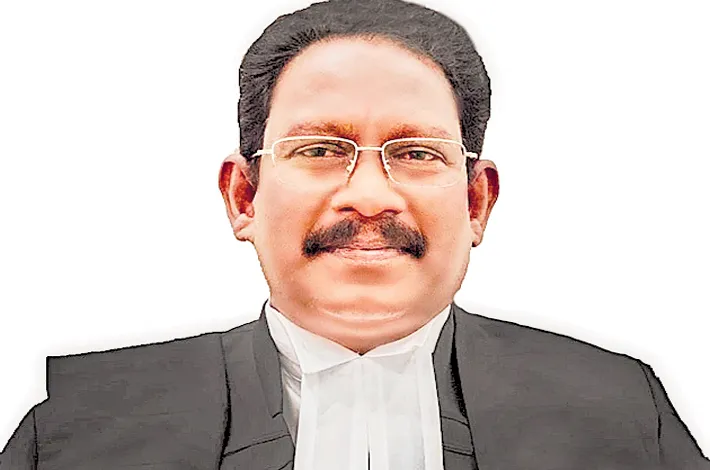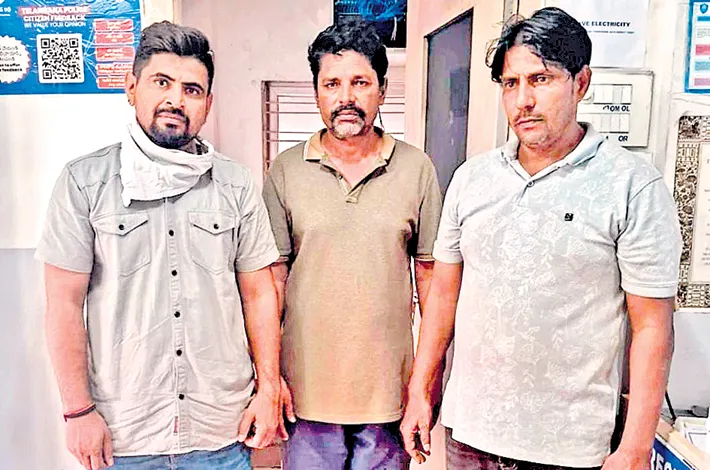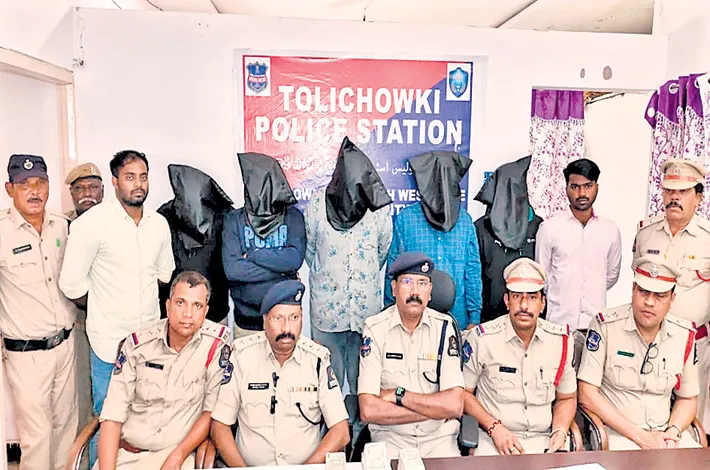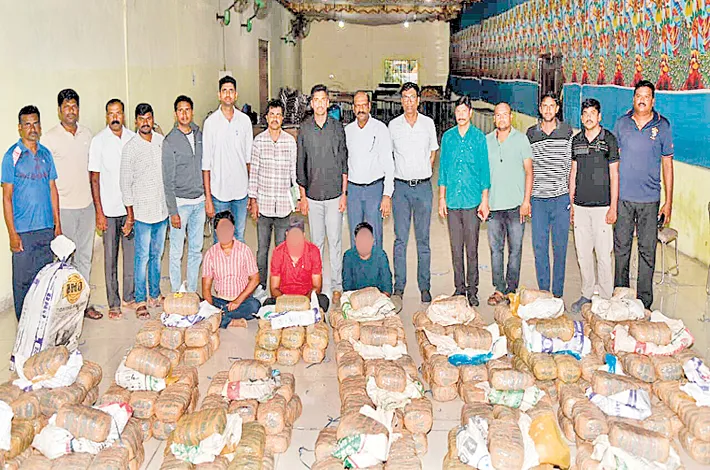The Ghost of Chambal
28-07-2025 12:00:00 AM

The Chambal Valley, a sun-scorched labyrinth of ravines and riverbeds, stretched endlessly before Inspector Vikram Rathore. Dust clung to his khaki uniform as he squinted against the horizon, where the Chambal River snaked through jagged cliffs. This was bandit country, a place where law and outlaw blurred like mirages in the heat. Vikram, a seasoned officer from Gwalior, had been summoned to Morena after a string of murders that left the local police baffled. The killer, dubbed "The Ghost" by terrified villagers, struck without pattern, leaving no trace but bodies carved with a strange symbol: a crescent moon.
Vikram’s jeep rattled along a dirt track, kicking up clouds of red earth. His driver, Constable Sharma, a wiry man with a nervous tic, muttered, “Sir, they say this Ghost is no man. A spirit of the ravines, angry at the living.” Vikram snorted, adjusting his aviators. “Ghosts don’t wield knives, Sharma. Men do.” But the unease in Sharma’s voice lingered. The valley had a way of twisting truths into legends.
Their destination was a small village, Bhind, where the latest victim, a local smuggler named Raghuveer, had been found two days ago. His throat was slit, the crescent moon etched into his chest. Vikram stepped out at the crime scene, a desolate patch near the riverbank. Flies buzzed over bloodstains soaked into the sand. The villagers, huddled at a distance, watched him with wary eyes. “Nobody saw anything,” said the local thanedar, a pot-bellied officer named Yadav. “Raghuveer was alone. No tracks, no witnesses. Like he was killed by air.”
Vikram knelt, studying the ground. The sand was disturbed, but not by footprints—more like something had been dragged. He followed the faint trail to a cluster of thorny bushes. There, half-buried, was a bloodied cloth, torn and coarse. Not a bandit’s silk scarf, but something rougher, like a farmer’s gamcha. “Bag this,” he told Sharma. “And get me a list of everyone Raghuveer crossed in the last month.”
Back at the police outpost, a crumbling building with a single fan wheezing against the heat, Vikram pored over the case files. Five victims in three months: a moneylender, a truck driver, two bandits, and now Raghuveer. All killed at night, all marked with the crescent. The only link was their ties to the valley’s underworld—smuggling, extortion, or worse. But the precision of the kills, the absence of evidence, suggested something more than a rival gang’s vendetta. This was personal.
Night fell, and Vikram ventured into the ravines, guided by a local informant named Chhotu, a scrawny teenager who claimed to know the valley’s secrets. “Raghuveer was meeting someone that night,” Chhotu whispered as they crouched behind a boulder. “Heard it was about a deal gone bad. Something about stolen goods.” Vikram pressed him for details, but Chhotu’s eyes darted nervously. “I don’t know more, sahib. People who talk about the Ghost don’t last long.”
A twig snapped. Vikram’s hand flew to his service revolver. The ravines were alive with sounds—crickets, the distant howl of a jackal—but this was different. He signaled Chhotu to stay low and crept toward the noise. Moonlight bathed the cliffs in silver, casting shadows that danced like specters. Then he saw it: a figure, cloaked in black, moving swiftly along the riverbank. Vikram gave chase, his boots slipping on loose gravel. The figure was fast, vanishing into a narrow gully. By the time Vikram reached the spot, it was gone. But in the dirt, he found a fresh imprint: the crescent moon, scratched with a blade.
Back at the outpost, the cloth from the crime scene yielded a breakthrough. A lab in Gwalior identified traces of turmeric and ash, suggesting it came from a village shrine. Vikram cross-referenced the victim list with local temples and landed on a name: Devi, a widow from a nearby hamlet. Her husband, a small-time smuggler, had been killed years ago in a gang feud. Rumors swirled that Raghuveer had betrayed him, leaving Devi to fend for herself. Could she be the Ghost? A woman driven by vengeance, striking from the shadows?
Vikram drove to Devi’s village at dawn. Her hut was modest, adorned with a small shrine to Goddess Kali. She greeted him with calm eyes, her hands stained yellow from grinding spices. “I heard you’re looking for a killer,” she said, offering him tea. Her composure unnerved him. He asked about Raghuveer, watching her closely. “He was a bad man,” she said softly. “But I don’t wander the ravines at night, Inspector.” Her alibi was solid—villagers vouched she’d been at a prayer ceremony during the last murder. Yet something in her gaze, a flicker of defiance, told Vikram she knew more than she let on.
That night, Vikram set a trap. He spread word through Chhotu that a notorious bandit, Bhanu Pratap, would be moving stolen goods near the river. If the Ghost was hunting criminals, this would draw them out. He and Sharma hid in the ravines, rifles ready. Hours passed in tense silence. Then, a shadow moved—a figure in black, blade glinting. Vikram sprang, tackling the figure to the ground. The hood fell back, revealing not Devi, but a young man with wild eyes. “You don’t understand!” he screamed as Vikram cuffed him. “They deserved it!”
The man was Arjun, Devi’s nephew. His father, Devi’s brother, had been another of Raghuveer’s victims. Arjun confessed to the killings, driven by rage and guided by Devi’s knowledge of the valley’s criminals. She hadn’t wielded the knife, but she’d pointed him to his targets, her grief fueling his vengeance. The crescent moon was their family’s mark, a symbol of justice in a lawless land.
As Vikram drove Arjun to the station, the ravines loomed in the darkness. Devi’s words echoed in his mind: “The valley keeps its secrets, Inspector.” He wondered how many more ghosts it hid, waiting to strike. The Chambal, he knew, would never be tamed.








